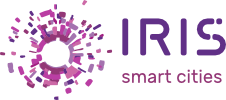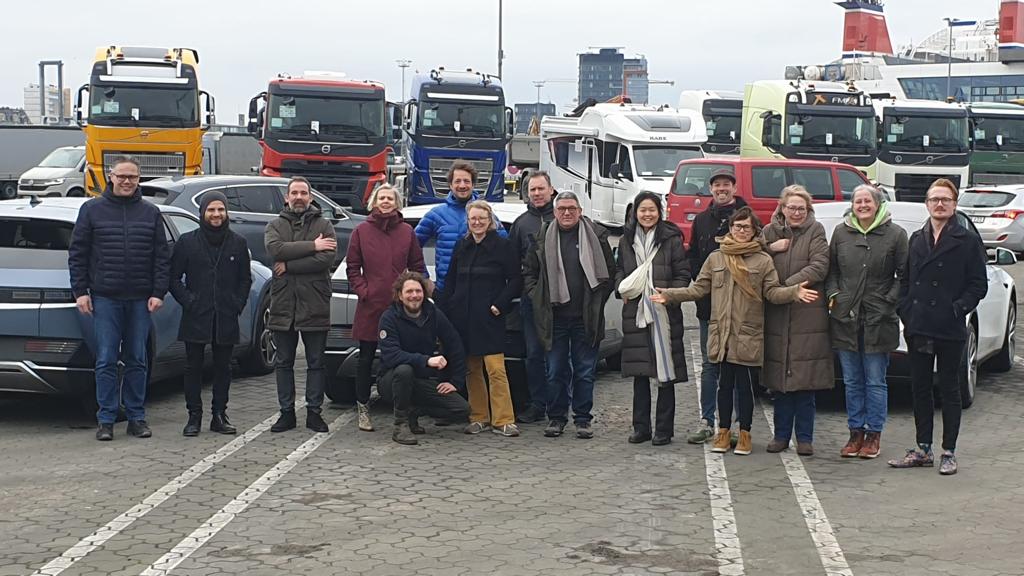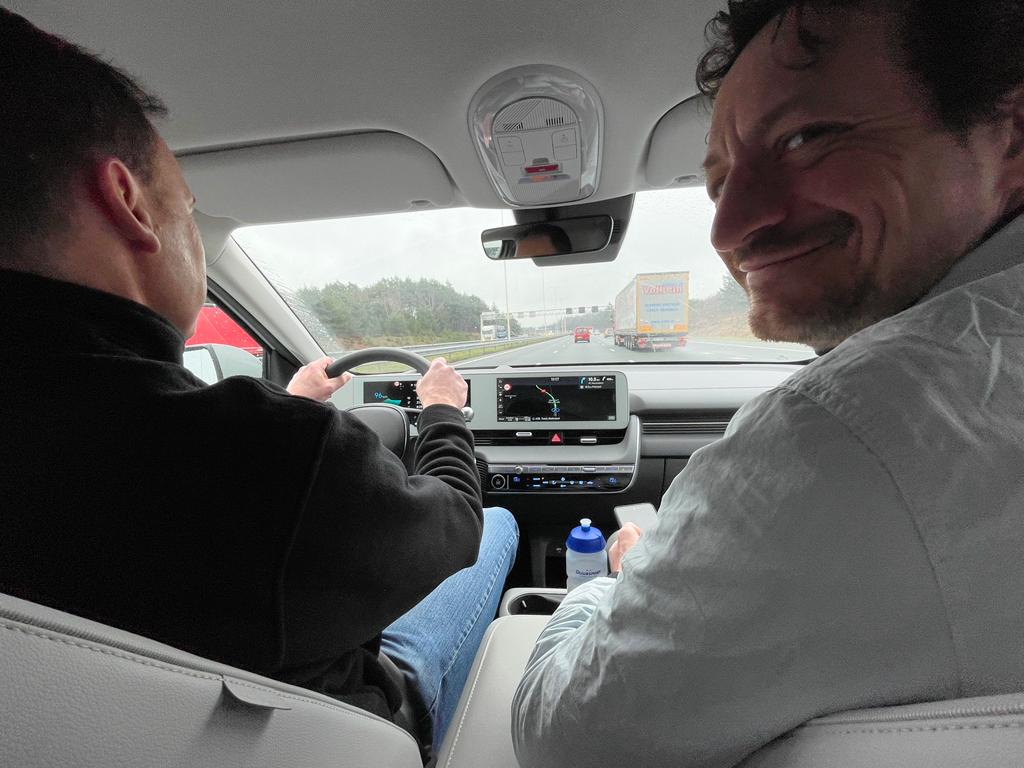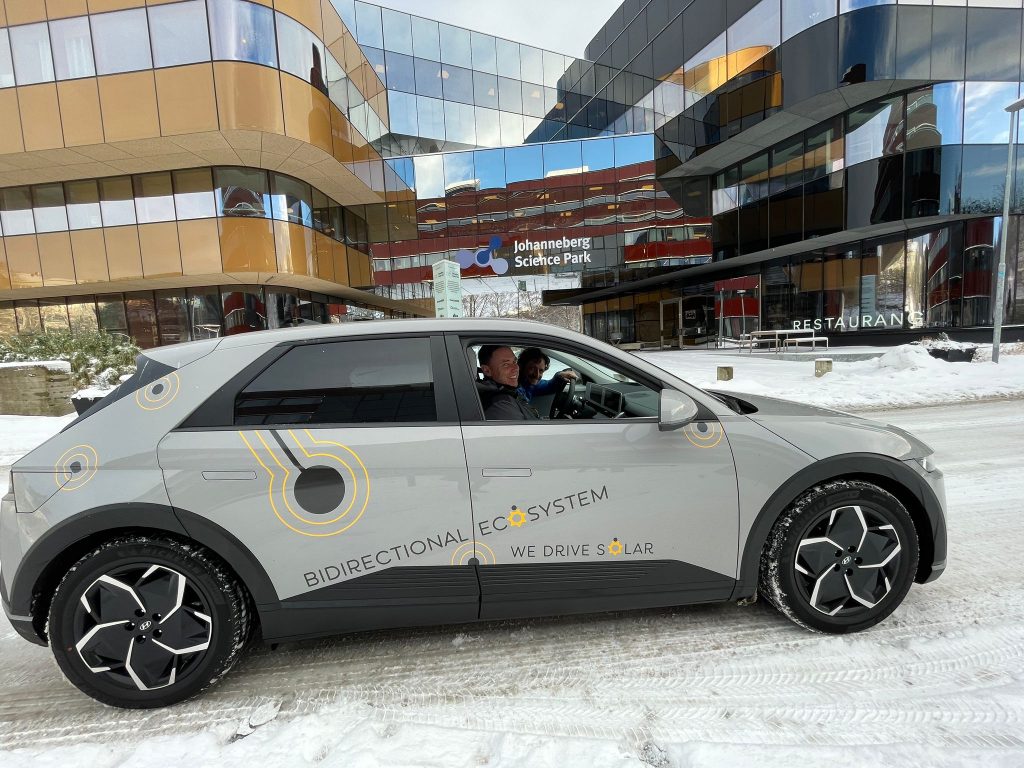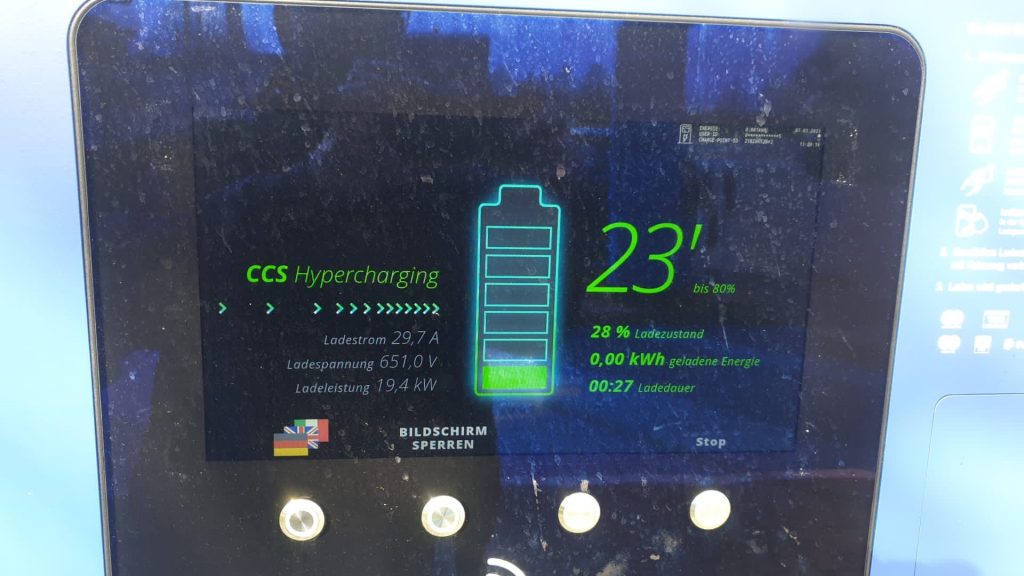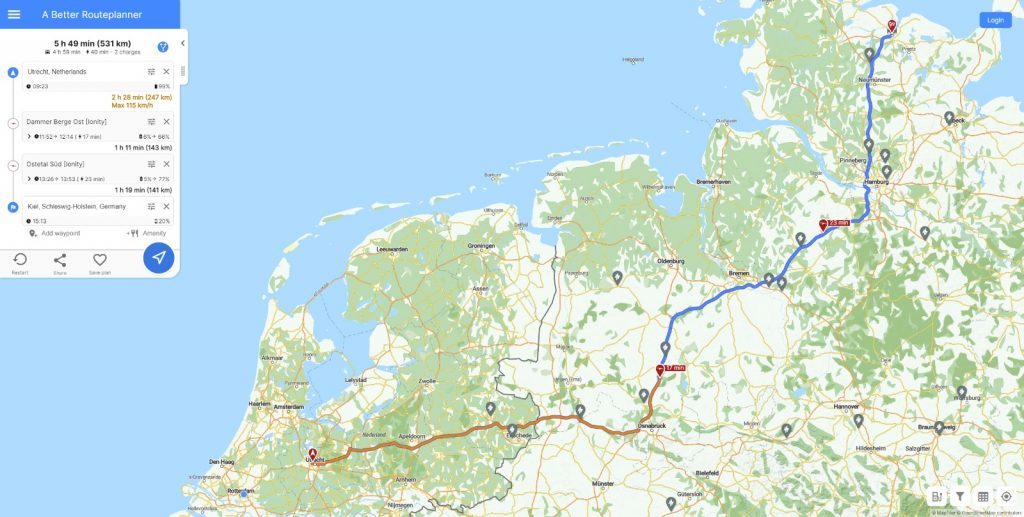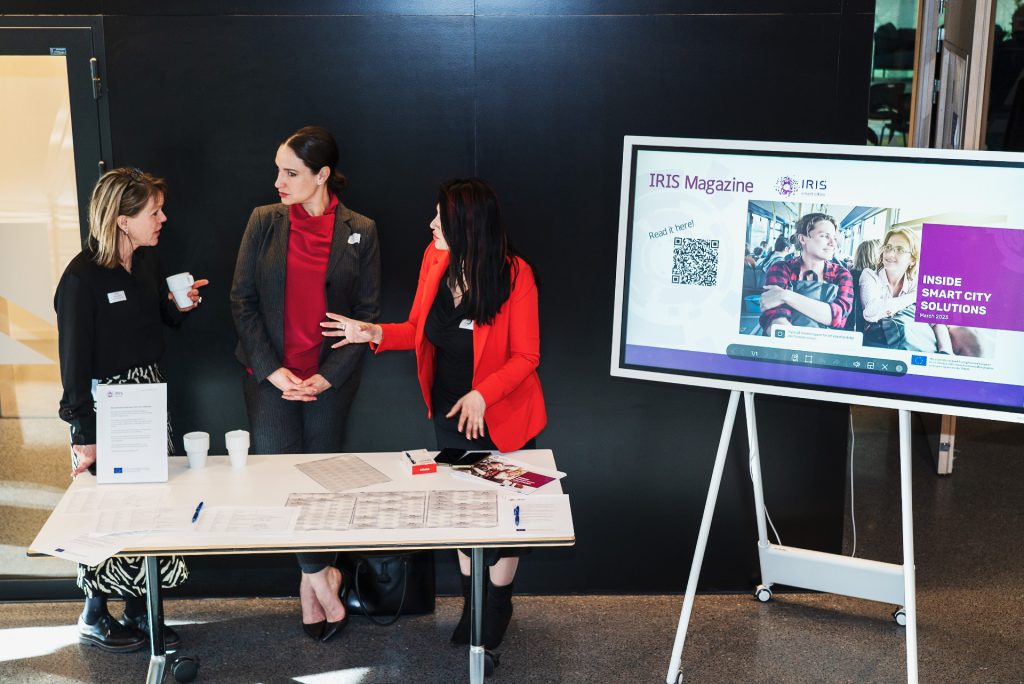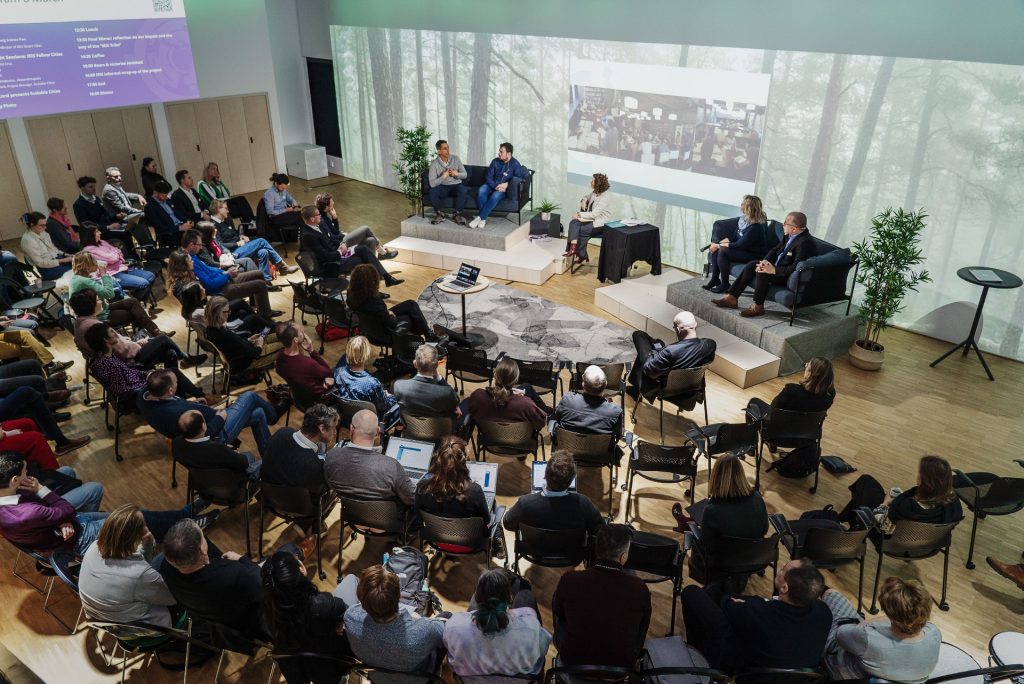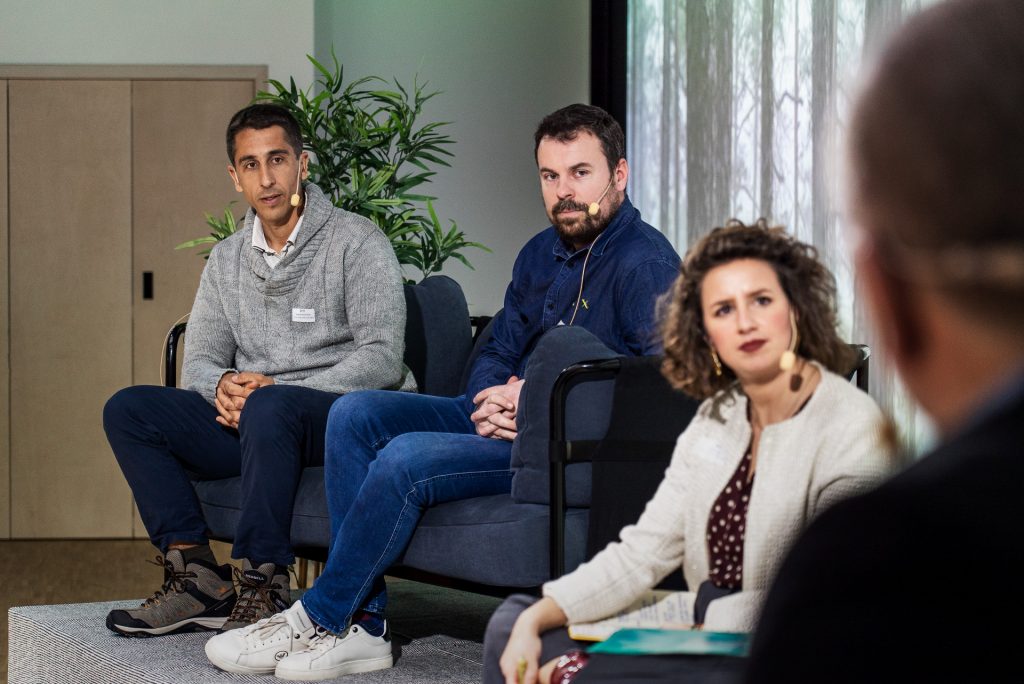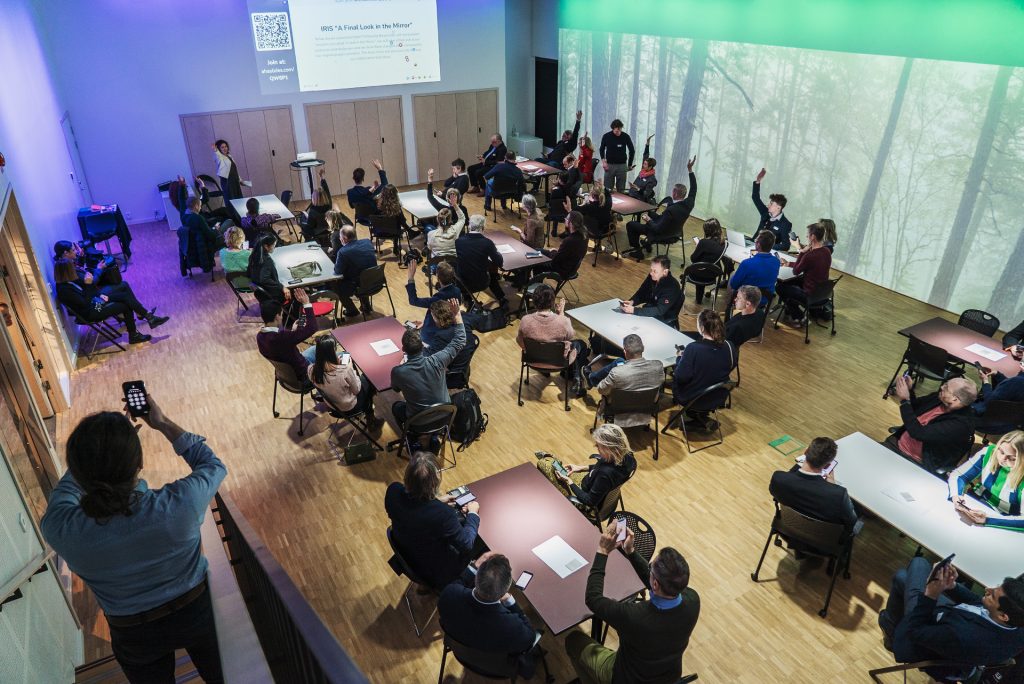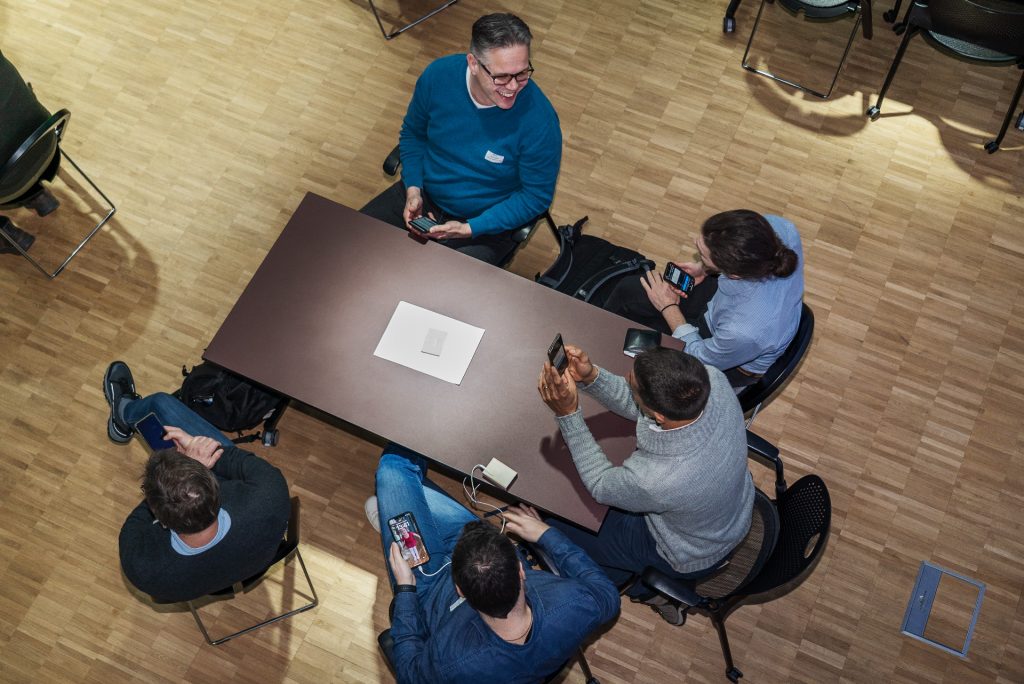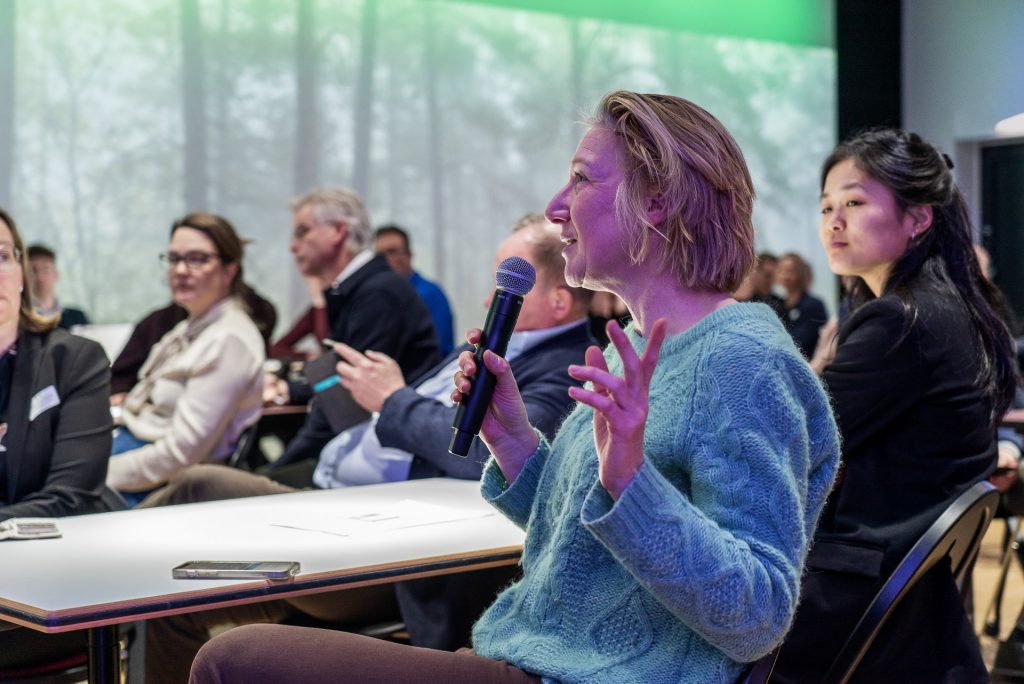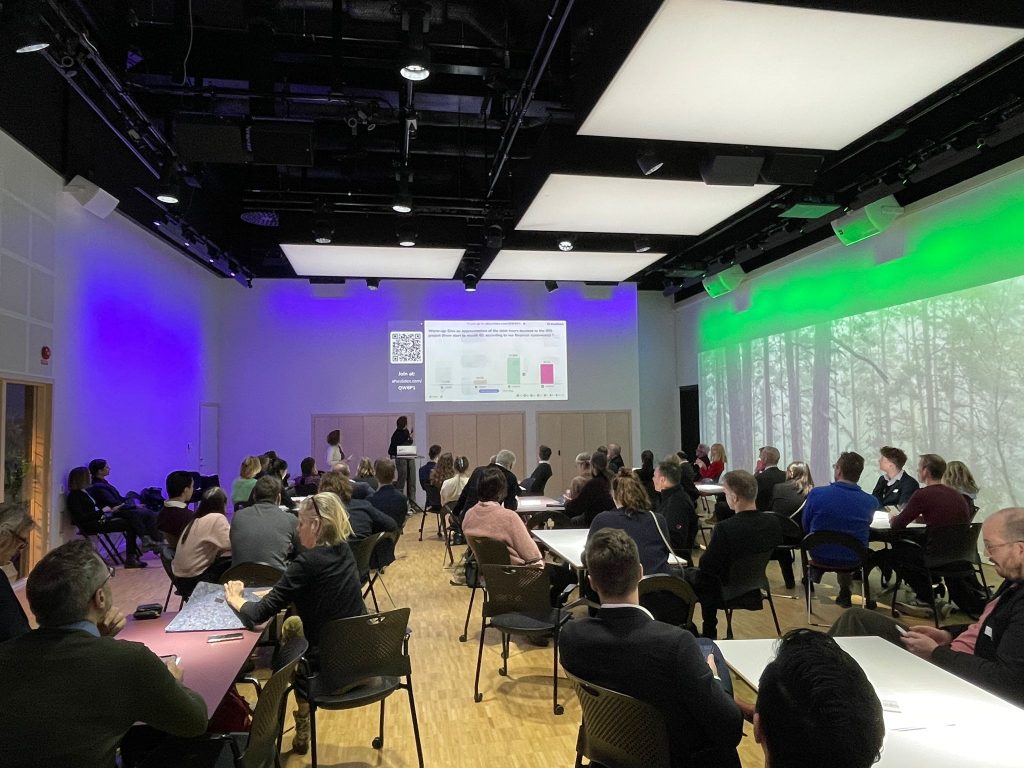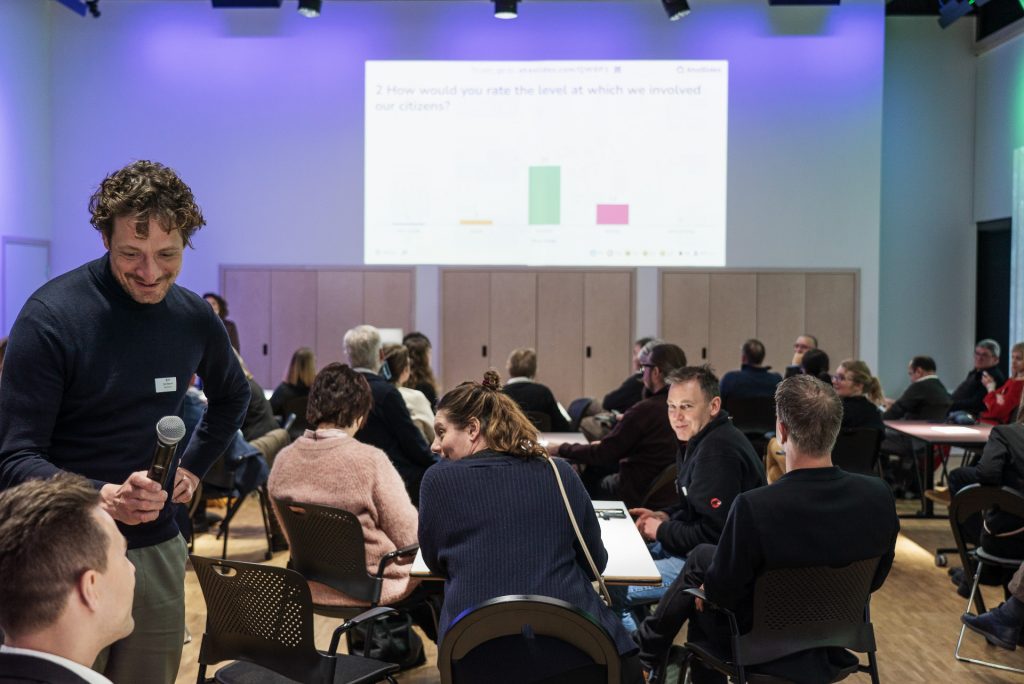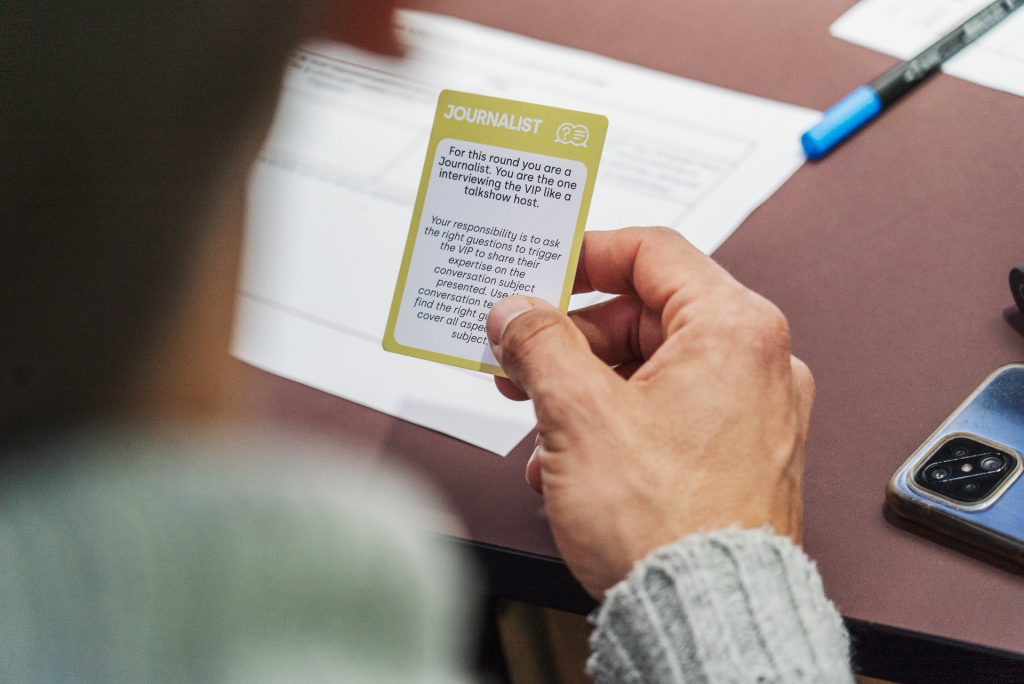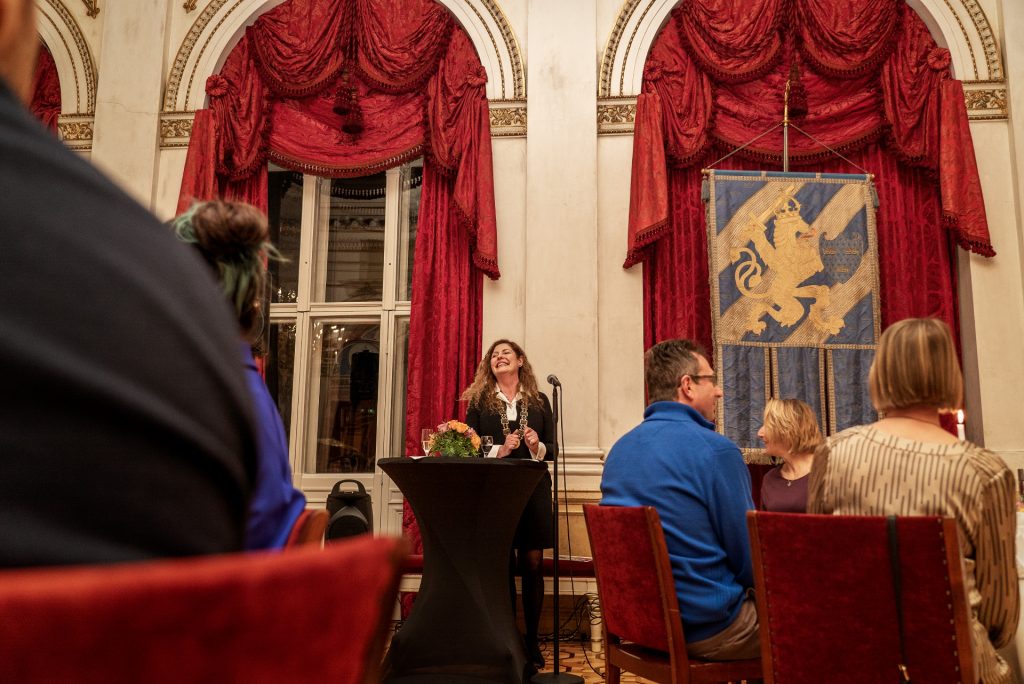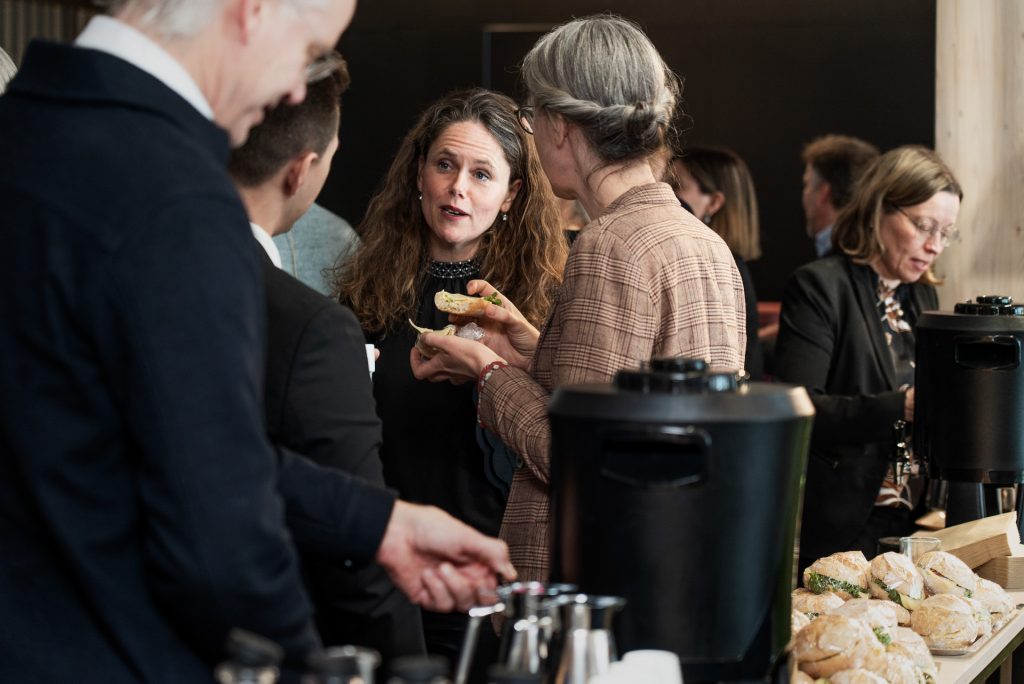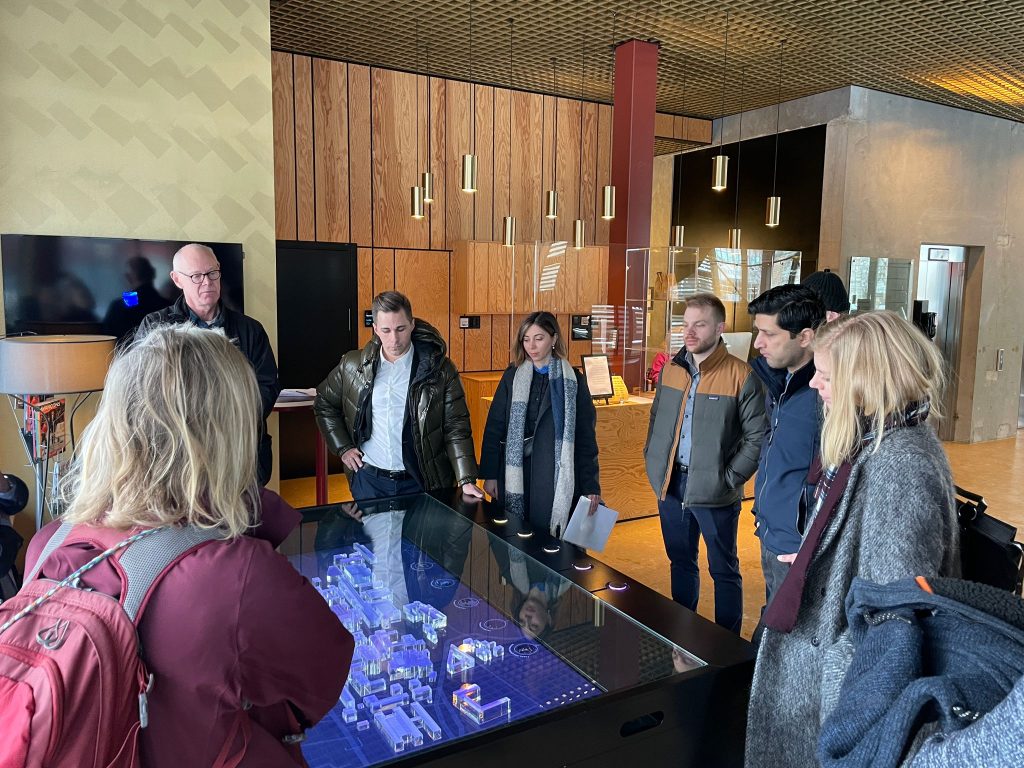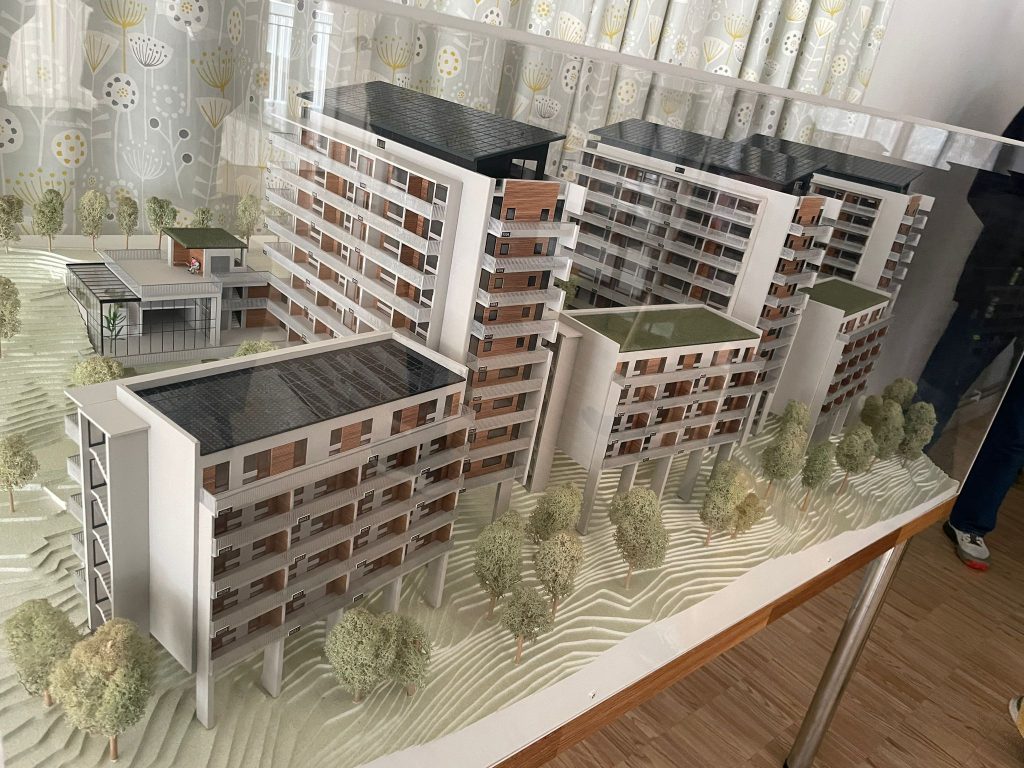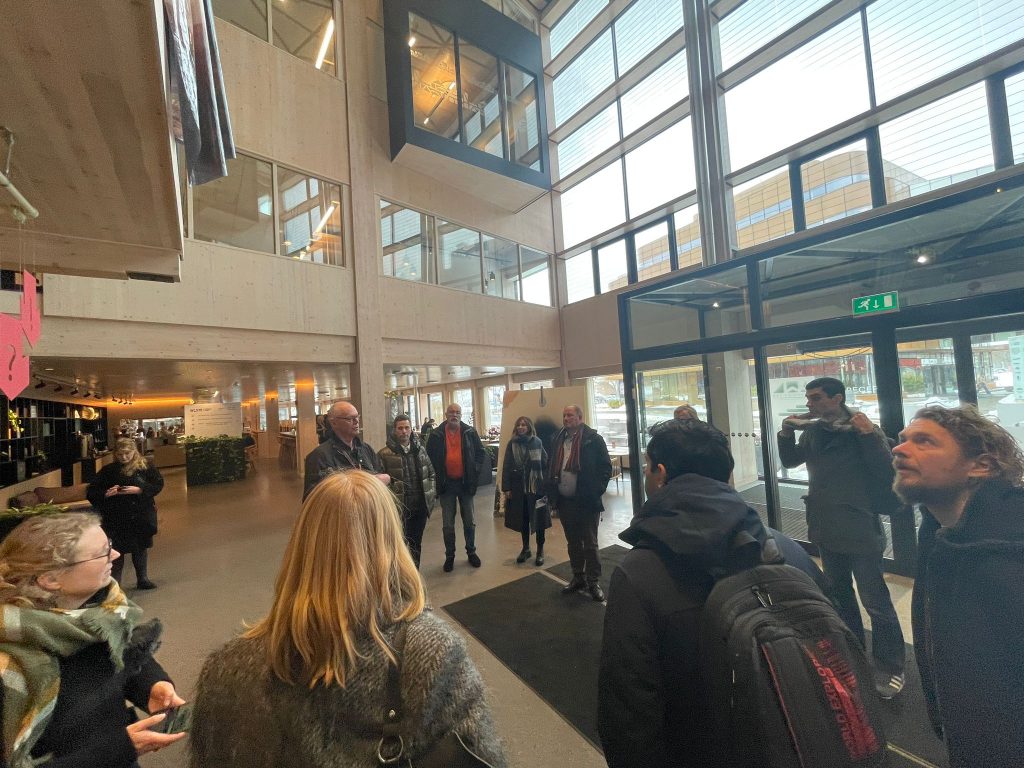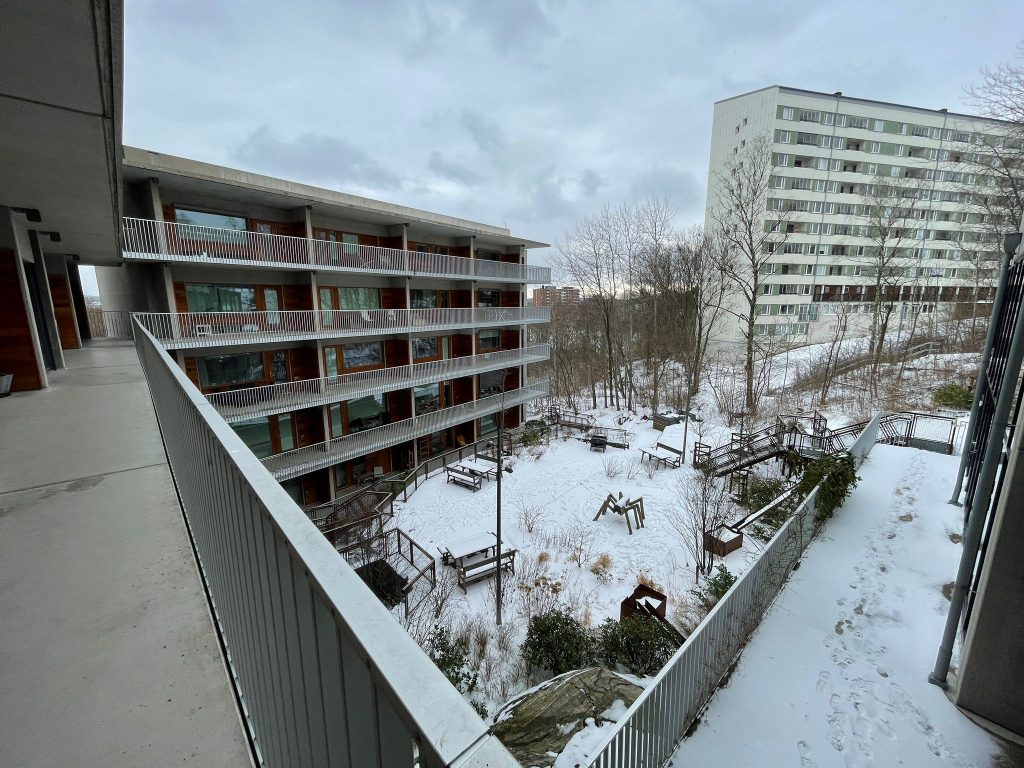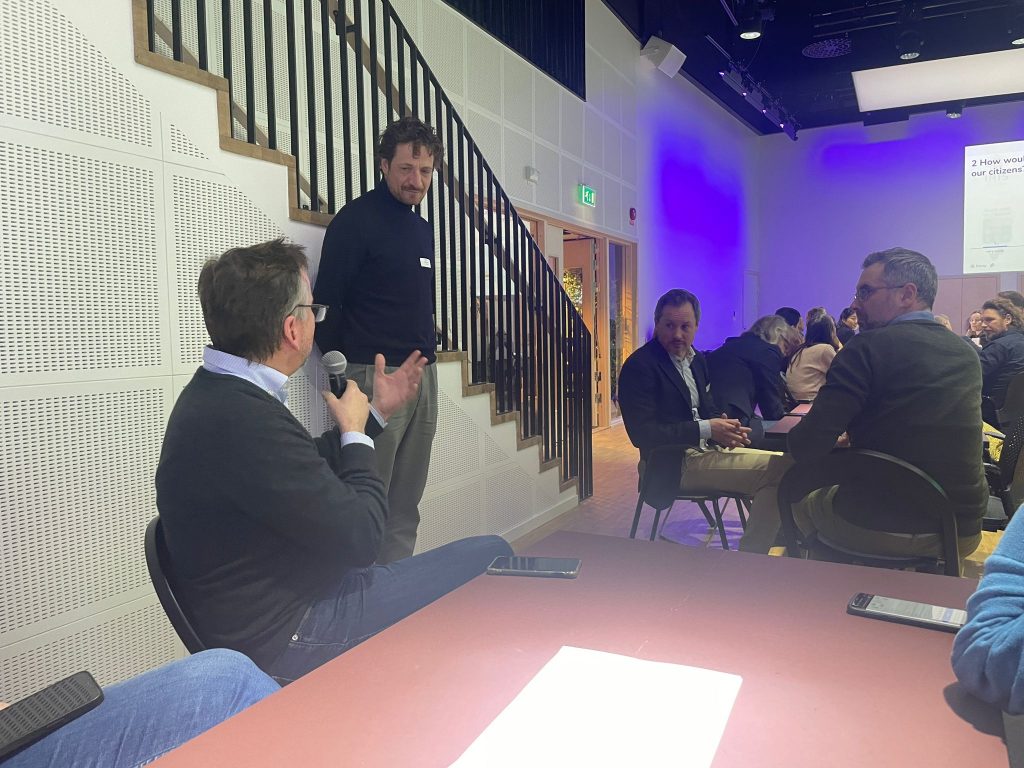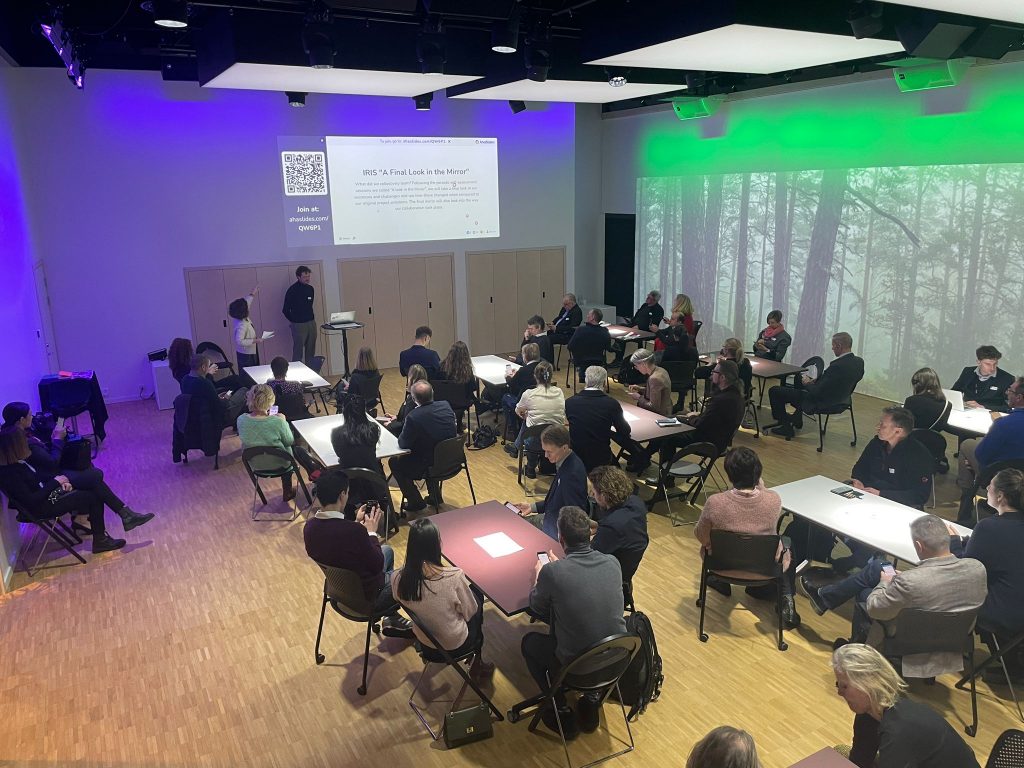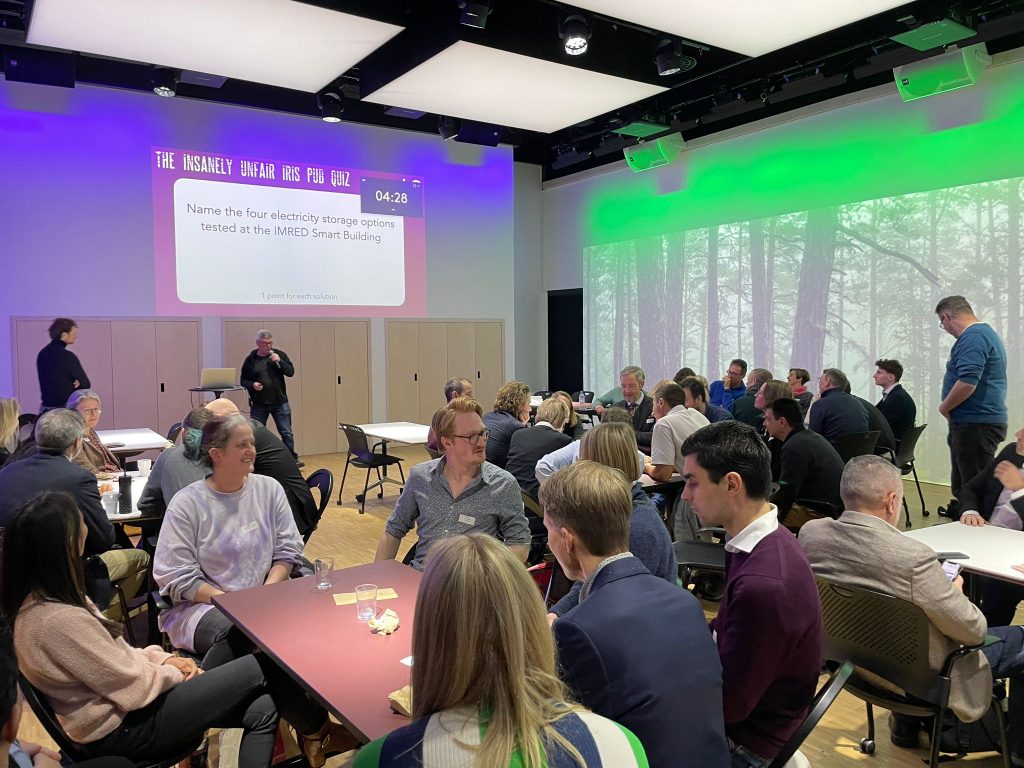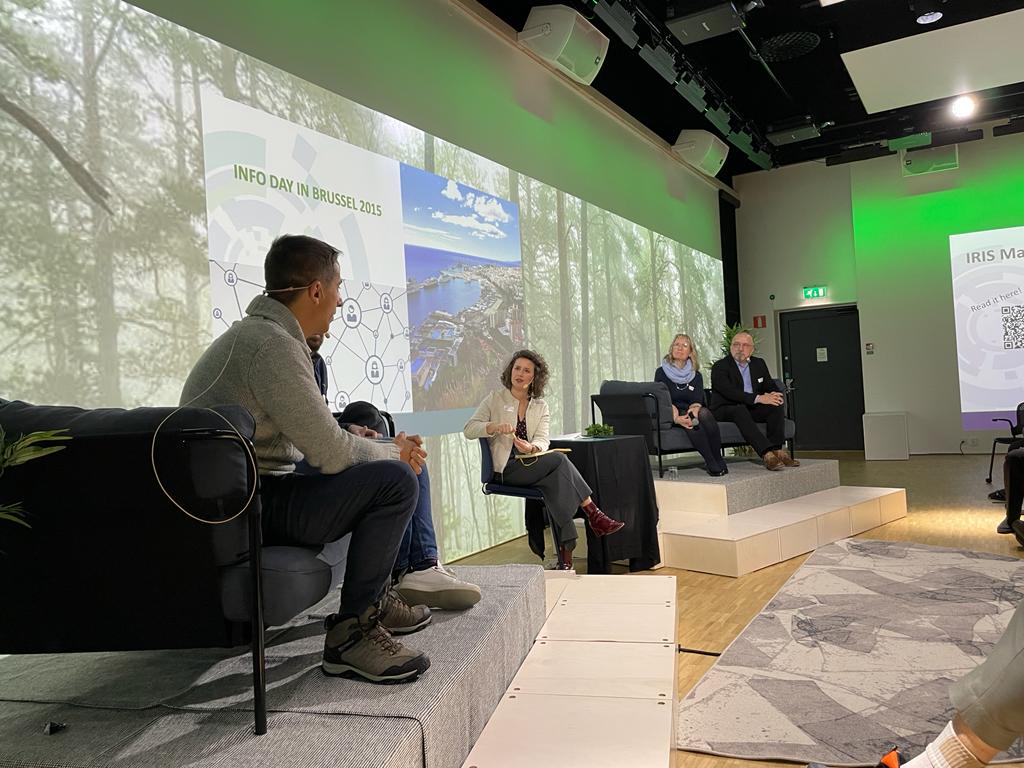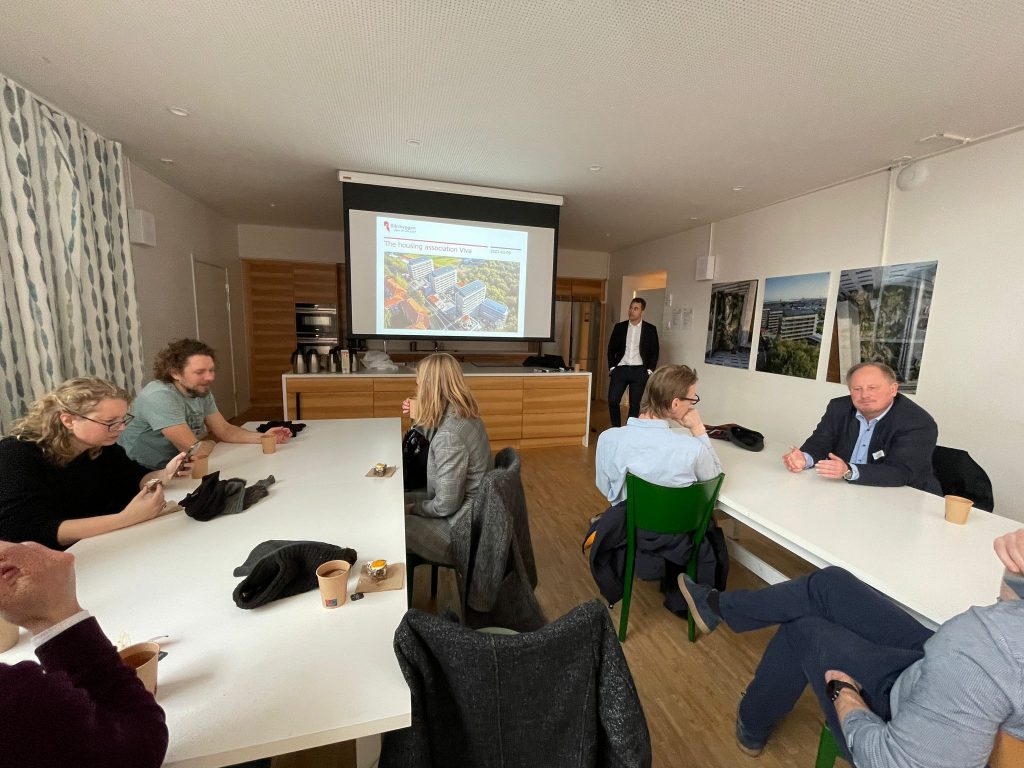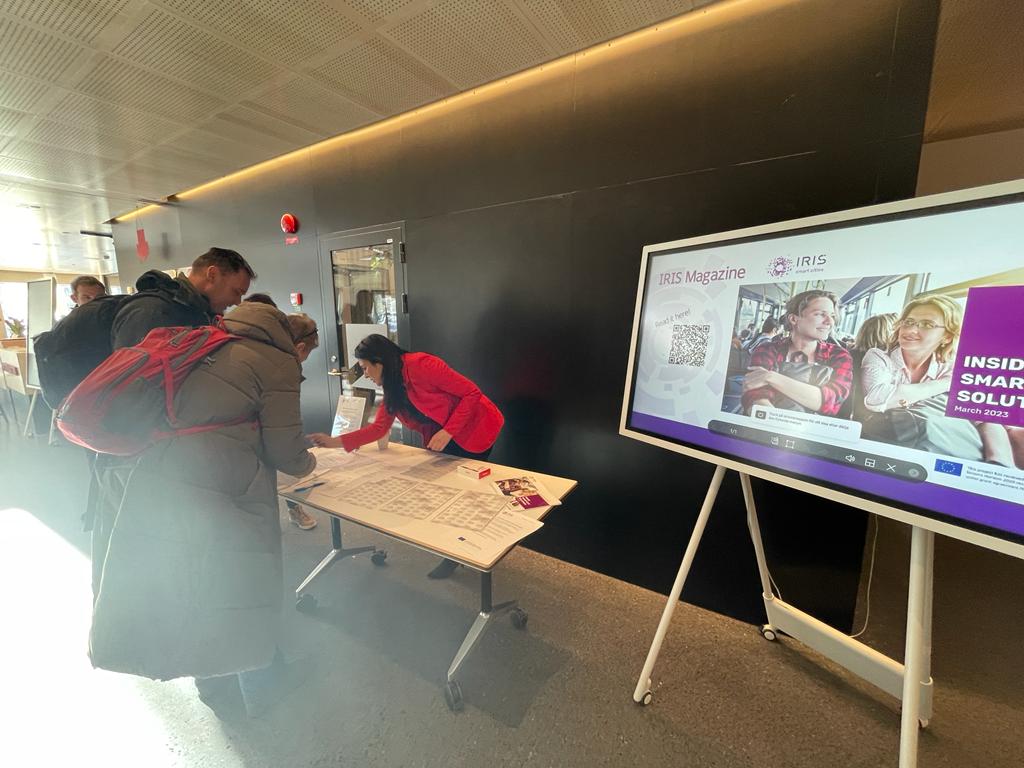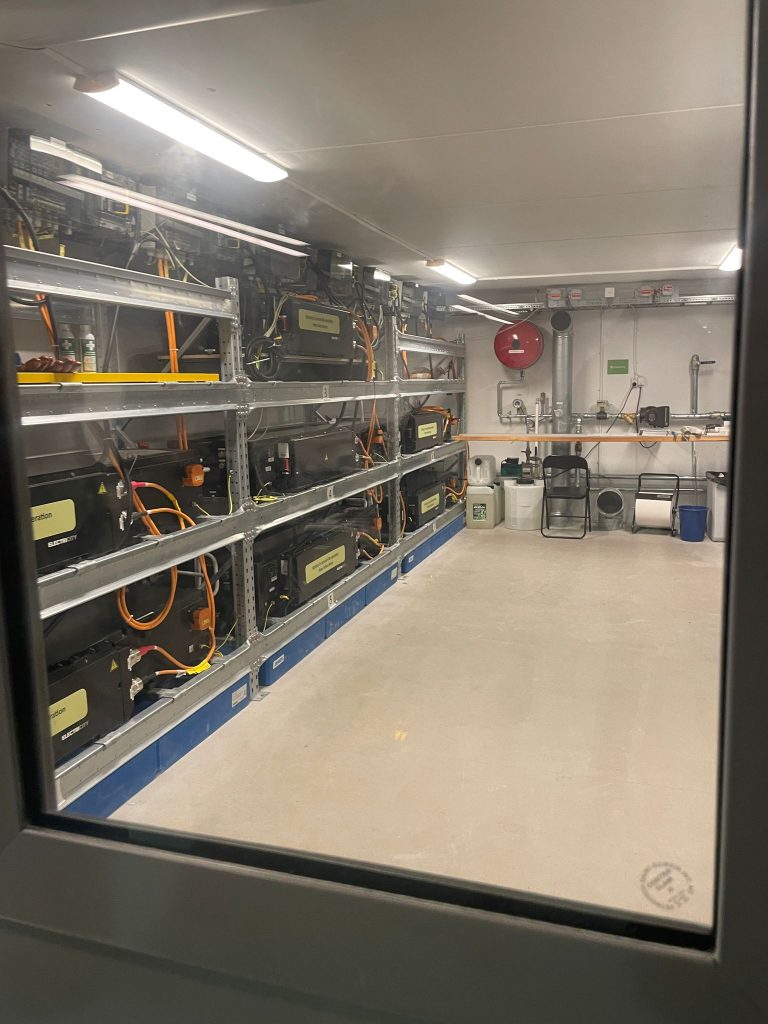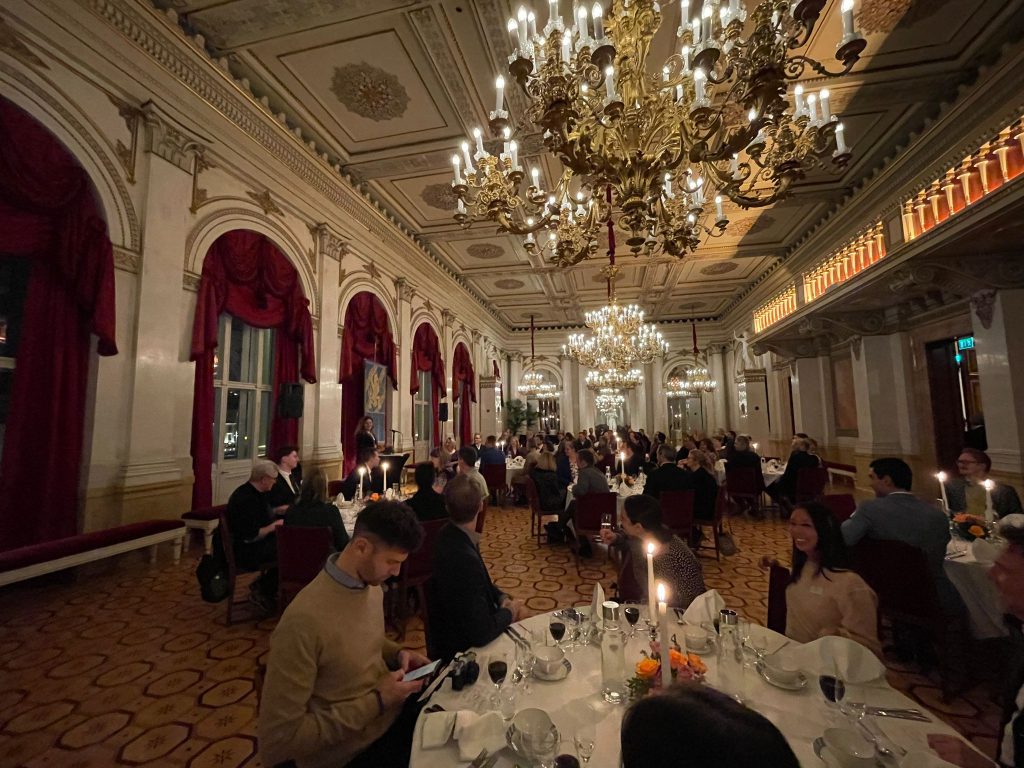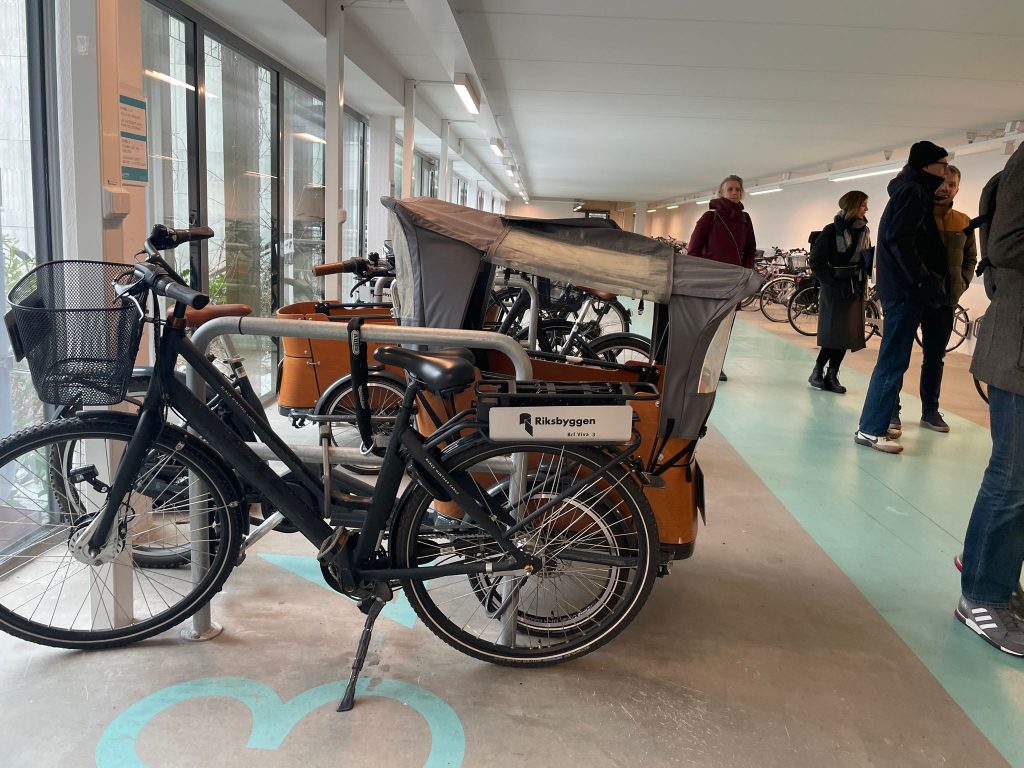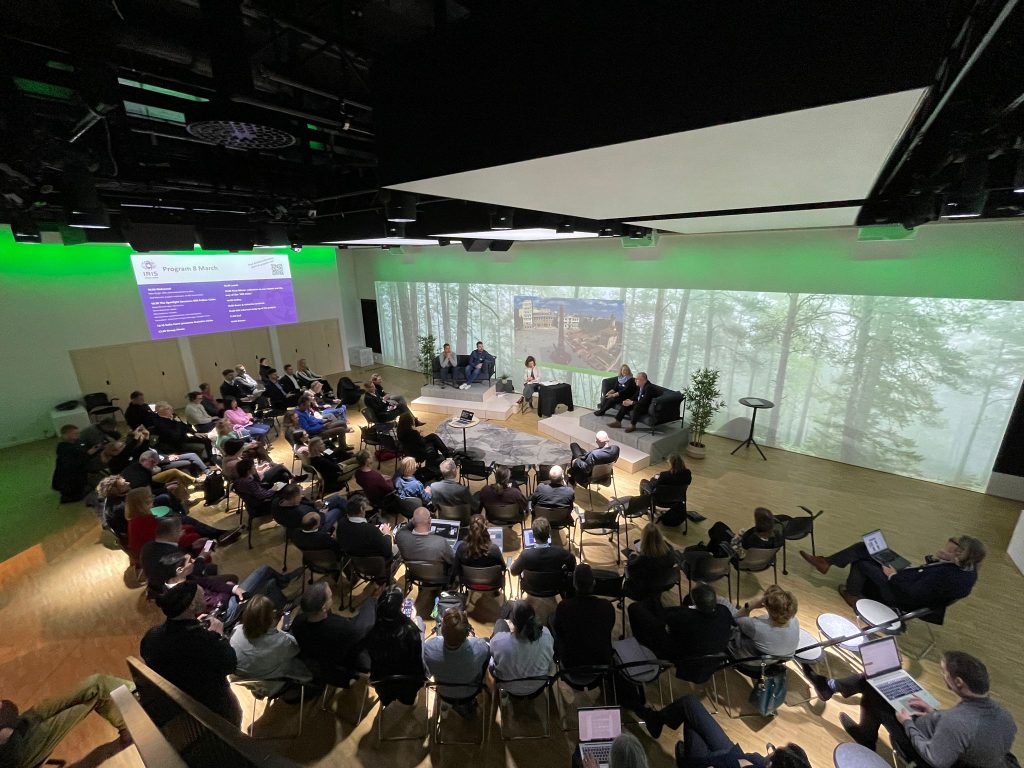
On the 8 and 9 March, the IRIS Smart Cities project partners and friends gathered at Johanneberg Science park in Gothenburg Sweden for a final celebration of the five and a half year long project.
To put IRIS solutions in action, some of the partners took the opportunity to travel to the meeting using a fleet of e-cars provided by project partner “WeDriveSolar” making the journey more fun and greener. The trip involved two Hyundai Ioniqs and two Teslas fitted with the V2G technology, a few stops at speed-charging points, and an overnight ferry from Keil to Gothenburg.
Once all partners gathered at Johanneberg Science Park the celebration could begin.
Moderated by Sofia Corsi from the Scalable Cities initiative, the event kicked off with some welcoming words from Mats Berg from Johanneberg Science Park and IRIS Smart Cites project coordinator Roel Massink from the Municipality of Utrecht. He gave a brief overview of the project which in 2017 brought seven European cities together: Utrecht, Nice, Gothenburg, Vaasa, Alexandroupolis, Santa Cruz de Tenerife and Focsani to work together to develop and implement smart solutions to make their cities more sustainable. Roel highlighted the innovation playground aspect of the project, a safe space to experiment and learn. The main accomplishments and lessons learned from the IRIS journey are to be gathered in the “IRIS Magazine” which was also previewed at the event.
During the morning session of day one, the spotlight was on the IRIS fellow cities of Vaasa, Alexandroupolis, Santa Cruz de Tenerife and Focsani. Maria Backman, Kostas Lymperopoulos, Diego Brook, and Dan Cazaciuc, the respective replication managers within each fellow city of the project. They took the opportunity to talk about the successes and challenges of replicating the IRIS solutions from the lighthouse cities of Utrecht, Nice and Gothenburg in their local contexts. The panel found common ground when noting that replication challenges, rather than coming from understanding the technology demonstrators themselves, in many cases stemmed more from the need to understand and tailor innovation management practices to local governance structures, political agendas, cultural specificities and geographical circumstances. In short, there is no “copy-pasting” when trying to replicate a smart city solution.
When the conversation moved to the topic of citizen engagement, it became quite clear that it presented one of the biggest and most important challenges within the project. Aside from the obvious difficulties presented by the pandemic, many on the panel and the audience agreed that to change the cultural mindset, more effort needed to be made at planning and budgeting stages of the project to foster bottom up and demand driven approaches to city planning rather than top-down ones.
The morning continued with a presentation of the Scalable Cities initiative which represents the 120 cities involved in the 18 Smart Cities and Communities projects funded by Horizon 2020. Like IRIS Smart Cities, all projects under that Scalable Cities umbrella have worked hard in consortia with academia, industry, associations and consultants, to implement more than 550 demonstrations of technological and social innovations in the areas of mobility and logistics, buildings, urban data and ICT infrastructure, citizen engagement and urban governance. It is the goal of Scalable Cities to ensure that the legacies of these projects live on. Some best practices collected by this initiative can be found in the “Systemic Changes in Governance. Equipping local governments for realizing climate-neutral and smart cities” publication issued earlier in the year and new funding opportunities.
During the afternoon, the “Final Mirror: reflection on our impact and the way of the “IRIS Tribe” workshop included an interactive pooling exercise where partners were invited to provide a self-assessment on the successes and challenges of the project and see how these changed from the original project ambitions. The final mirror also looked at how IRIS collaborations took place. Some insights from this session included the fact that approximately 250,000 hours were devoted to IRIS activities, with most partners agreeing on a strong level of achievement of the ambitions originally set.
With the “Bears & victories” session, participants worked in groups to interview each other on what lessons and stories the project gave them. Some said that managing a project like IRIS requires a lot of patience; if you do not have it you should think twice about getting involved. Some said that it is important to be proactive and go into detail from the start, especially if you are a replication manager. Others emerged with a renewed sense of Europeanness.
Key words that emerged throughout the afternoon when seeking to define the “IRIS tribe” were ’collaboration,’ ’trust,’ ’commitment,’ ’competence,’ and ’friendship.’ The words reflect one of the main lessons of the IRIS project; value relationships. IRIS benefitted greatly from projects partners from all over Europe, learning from each other about how different people cope with similar innovation challenges. Peer to peer meetings, coffee breaks at events and specially designed interactive workshops at project meetings were all important to help consortium partners build trust and confidence in each other and learn from each other’s strengths.
The first day concluded with a beautiful dinner hosted by Göteborgs Stad and deputy Lord Mayor Margareta Broang where special thanks and recognition was given to several members of the ‘IRIS tribe’ and an IRIS themed song was sang (lyrics below)!
With the main celebrations over, the second day focused on three tours that gave an opportunity to learn about the impact of IRIS solutions in Gothenburg; the Electric Public transport system in Lindholmen, the energy efficient buildings of the Brf Viva and HSB Living Lab and the Gothenburg Digital Twins via the Visual Arena.
To conclude this event and project, we can say that IRIS started out to make urban environments better places for citizens and the planet. We tested innovative solutions, mainstreamed viable technologies and methods and explored policies, products and engaged with citizens and end-users to achieve this.
Now the results of the IRIS project live on in the people that can use shared bidirectional electric vehicles, live in positive energy footprint buildings, and access to more efficient and cost-friendly energy services. Education and training programs, digital games and solutions that make being sustainable an easy choice will also contribute to clean and climate neutral urban environments. But for the IRIS tribe, the project will also live on in the great friendships and partnerships built.
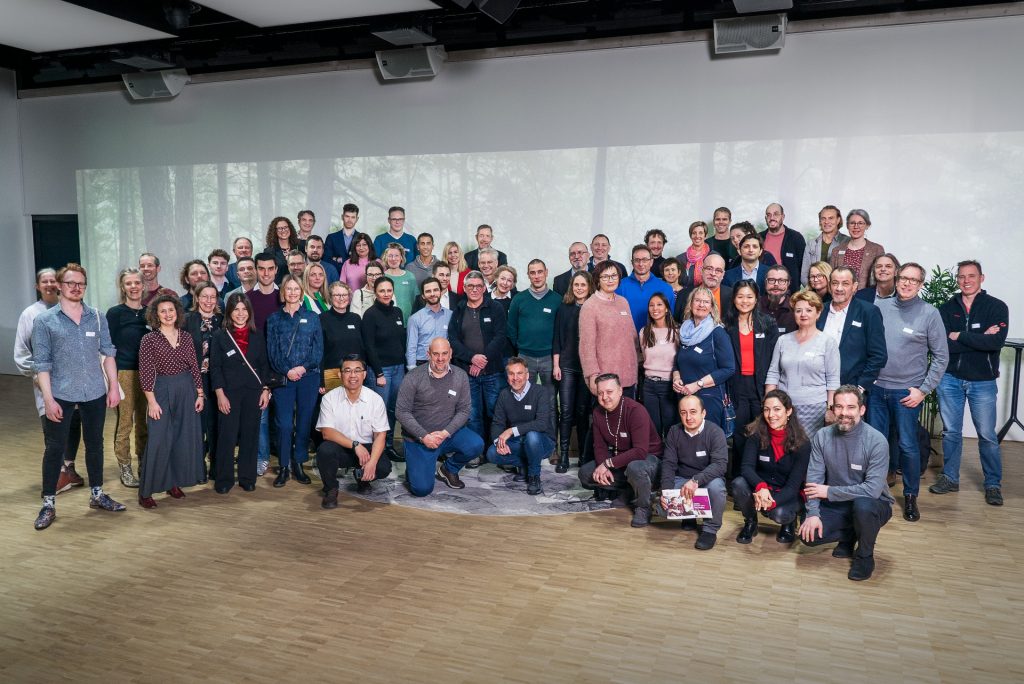
Aside from the hard work which you can find highlights of in the IRIS magazine and in the Showcase website, to reflect the creativity and spirit of playfulness that was present throughout the project meetings over the years, below is a concluding ode to IRIS written by our partner and friend Willem-Jan from HKU:
THE IRIS LIGHTHOUSE SONG – sang to the theme of “The Wild Rover”
Some five years have past since we put in our bid
A lighthouse we built and successful we did
Embarked on a mission, priority high
To meet a collection of tough kpi
And it’s no, nay, never
No, nay IRIS no more
We succeeded our mission
The oath that we swore
In Utrecht and Nice, and in Gothenburg too
We faced a great challenge, and some hard to chew
Our follower cities faced struggles as well
But now we are proud, with great stories to tell
And it’s no, nay, never
No, nay IRIS no more
We succeeded our mission
The oath that we swore
Refurbished our buildings, used light from the sun
A great many measures, were tested and done
Each carried their burden, on IRIS, our ship
Raoel as our captain, and tight in his grip
And it’s no, nay, never
No, nay IRIS no more
We succeeded our mission
The oath that we swore
Now close to the ending, and final review
Supported by friendship we mutually grew
But now we will all sail a different ship
But never forget this remarkable trip
And it’s no, nay, never
No, nay IRIS no more
We succeeded our mission
The oath that we swore
